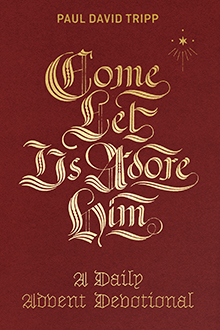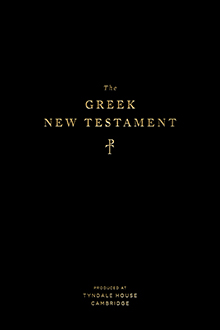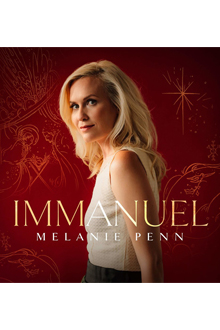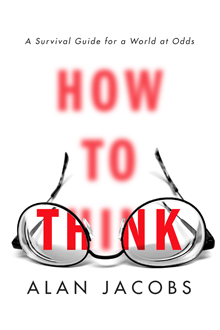 |
 |
 |
 |
Come Let Us Adore Him: A Daily Advent Devotional by Paul David Tripp (Crossway 2017, $17.99)
Review by Caleb T. Shaw
I have been singing along to Andy Williams’ “It’s the Most Wonderful Time of the Year” for about a month now, and I submitted Christmas lists to both sides of my family long before Thanksgiving. It’s safe to say I am overjoyed that Christmas is right around the corner. But in the middle of the decorating, shopping, and baking, I often neglect remembering the true hope of this joyful season. Pastor and author Paul David Tripp recognized this same sinful tendency in all believers and wrote Come Let Us Adore Him to remind us about God’s redemptive plan in the birth of Jesus Christ.
“I wrote this devotional with the prayer that God would use it to recapture your attention,” Tripp says. “I am going to ask you to come with me, kneel down, and look into that manger.”
This Advent devotional provides a three-to-five page entry for every day of the month of December. Each day starts with a short, tweetable thought followed by a gospel-focused devotion, a biblical reference for further study, and a helpful idea for presenting that truth to your children.
The Greek New Testament by Dirk Jongkind and Peter J. Williams, eds. (Crossway 2017, $39.99)
Review by Andrew J.W. Smith
Within seconds of cracking it open, the first thing that stands out to the reader of Crossway’s new Greek New Testament, produced at Tyndale House, Cambridge, is probably the typeface and text layout. For readers familiar with the United Bible Society’s fourth edition of the Greek New Testament, the easy-to-read font is a significant improvement of the italicized text in UBS4. For readers familiar with the Nestle Aland Novum Testamentum Graece, either in its 27th or 28th editions, the stripped-down critical apparatus of the new Tyndale House Greek New Testament will also be easier on the eyes. More importantly, that change also reflects a philosophical decision the editors made: to emphasize the text found in the earliest New Testament manuscripts.
Using a 19th century edition of the Greek text by Samuel Prideaux Tegelles as its starting point, the editors of the Tyndale House Greek New Testament required that their text be attested by at least two different manuscripts — with one of those dating to the fifth century or earlier. What was originally intended to be a revision of the Tegelles text eventually became its own, brand-new edition.
The other major difference for the average reader will probably be the order of the books. Rather than following the traditional order (Gospels, Acts, the Pauline epistles, the catholic epistles, Revelation), the Tyndale House Greek New Testament lists the catholic epistles first to reflect the most common ordering among the earliest full manuscripts, according to the introduction.
Immanuel by Melanie Penn (Equally Well Music 2017, $11.99 on iTunes)
Review by Matt Damico
Melanie Penn covers a lot of ground on her new Christmas album. Nine of the 10 tracks come from the perspective of different characters in the Christmas tale, from the Magi to the Innkeeper to the angel Gabriel.
What ties the project together is Penn’s clear and honest voice, accompanied by clean, undistracting instrumentation and production on each song.
Strong tracks include “Great Things,” a stirring recasting of Mary’s Magnificat, and her simple arrangement of “Joy to the World,” the one cover and the sole exception to the first-person theme. Some of the most creative songwriting comes in “Light the Way,” written from the perspective of the star of Bethlehem.
How to Think: A Survival Guide for a World at Odds by Alan Jacobs (Currency, 2017, $23)
Review by Aaron Cline Hanbury
You get more from this book’s subtitle than its big, red words. It tells you right off that author Alan Jacobs writes about a world “at odds.” Crack open the book and you’ll see a very specific world, one filled with the day-to-day anxieties of Westerners active on Twitter. This could tempt you to read Jacobs’s book as “a survival guide for a world on social media.” But that’s a shallow reading.
Yes, the setting of How to Think looks familiar to anyone with a smartphone. Another world exists on social media — a world dominated by outrage where the only recognizable requirement for citizenship is a strong opinion about whatever. In this world, you’re either far right or far left, a friend or an enemy, right or wrong. If you’ve been there, you’ve felt it. Look a little closer, though, and you’ll see not an alternative reality, but a microcosm of a tribalism that extends much farther than a social feed.
Thus, How to Think is a book about identity politics writ large. At least as Jacobs see it, a lack of (clear) thinking plagues our culture — a manifestation of which we see in online streams of outrage. In the book, Jacobs, a professor at Baylor University, describes “attractions” and “repulsions,” the unspoken, visceral community guidelines we use either to accept or reject any particular point of view. Basically, our tendency is to virtue signal rather of navigate the complex world of ideas and convictions and opinions and preferences. Jacobs teaches us to think better.
How to Think is a logic textbook, blended with a book about manners, presented like a fast-paced — if long — essay. At the end, Jacobs includes a 12-point afterword he calls, “A Thinking Person’s Checklist.” In it, he offers tips like, “try to describe others’ positions in the language that they use, without indulging in in-other-wordings.” This idea — in-other-wordsing — he uses to explain the way people often discredit opponents’ arguments or ideas. You’ve heard it, something like, “Ellen isn’t an amillenialist. In other words, she just doesn’t understand the Bible.” In this case, Jacobs might say, we’re ignoring the substance of Ellen’s criticism and writing her off with a caricature-ish paraphrase. Of course, most real instances of in-other-wordsing aren’t as gentle.
You can be forgiven for thinking the book is about social media, at least at the beginning. But pretty quick you’ll see it’s about much more. Jacobs, or some editor somewhere, is right about the title.




